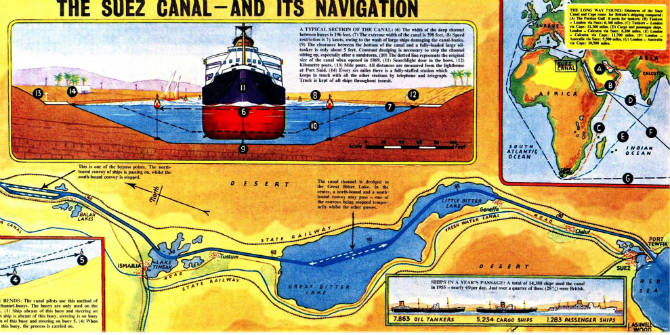There is a future to be had for the Welsh independence movement. Wales’ vote in favour of Brexit was not a one in favour of centralising more power in Westminster. At the same time Labour, that has dominated the country political scene, finds its formula of civic Welsh nationalism increasingly untenable. Samuel Parry writes that but for the virtual non-existence of independent Welsh media conditions post-Brexit are ripe for the Welsh independence movement to thrive.
The Welsh Independence Movement has always been rather weak, never building on its 19th-century foundations when a young David Lloyd George became the leader of Cymru Fydd, a pressure group created to advance Welsh culture. With hindsight, Cymru Fydd’s obsession with cultural, rather than political autonomy illustrates the historical weakness and lack of ambition shown by Welsh movements in comparison to those of Ireland and Scotland.
England and Wales decided to leave the European Union, this could perhaps be seen as the last nail in the coffin of this fringe movement. After all, Plaid Cymru’s constitution states that they believe in an independent Wales within Europe. Now that membership of the EU has been rejected by the people of Wales, does independence become untenable? Simply, no. In fact, it creates the conditions to make independence for Wales a radical alternative in the face of an increasingly centralised, right-wing Westminster. This is not impossible, 69% of people in Wales believe that the Welsh Government, not Westminster, should have the most say in how Wales is run. This may prove fertile ground for the independence movement.
The reason that the independence movement in Wales has been historically weak is threefold; Labour’s incorporation of subaltern narratives, Plaid Cymru’s recent meek, reformist policy coupled with their historic obsession with language and culture, and the lack of indigenous Welsh Media.
Since devolution, Labour have positioned themselves as the centre-left soft Welsh nationalist party and have been successful in this approach. Labour’s hegemonic position means that those voters who may be generally sympathetic to Plaid’s and Leanne Wood’s aims continue to vote Labour due to inertia and habitual voting. This explains why Plaid, even with the most popular leader in Wales continually do worse than Labour. Labour’s response to the Plaid Cymru challenge has been twofold; the incorporation of some of the more ‘harmless’, ‘banal’ policies and the complete refutation and vicious rejection of others. Labour have incorporated Plaid Cymru policies and discourses where possible, especially Plaid’s claim of being the ‘Party of Wales’. For example, Welsh Labour’s 2016 manifesto states that they are ‘Together for Wales’ and that “Welsh Labour is a party of the people, for the people”. When a Plaid discourse cannot be situated within a Welsh Labour platform they attack these positions fervently. This is the definition of hegemony; a hegemonic power must remain constantly aware of these counter and alternative narratives, and be able to incorporate them or neutralise them, but when this is not possible, these discourses will be “extirpated with extraordinary vigour”. Labour’s cooptation of Welsh language policy is a prime example of the incorporation of subaltern narratives, co-opting Cymdeithas yr Iaith (Welsh Language Society), which has been incredibly damning of Welsh Labour in the past. This soft nationalist approach has created a ‘new’ or ‘civic’ Welsh identity. An identity that is softly nationalist yet ultimately unionist, which, in turn, bolsters Labour hegemony.
The result is that Labour’s ‘inclusive’, ‘civic’ Welshness is used to disarticulate all rival conceptions of Welshness. Anything that doesn’t easily fall within Labour’s narrative can be deemed as ‘reactionary’, ‘ethnic’ or ‘exclusive’. Language concerns and Welsh language activists are posited as ‘ethnic’ and ‘exclusionary’ groups versus the ‘cosmopolitan’, Anglophone, Labourism. This discourse has posited Plaid Cymru as the ‘nasty nationalist party’ against the soft-nationalist ‘inclusive’ Labour nationalism. Welsh Labour have striven to present Plaid Cymru as extreme with controversies surrounding the cultural impacts of large-scale in-migration from England into poorer, largely rural and traditionally Welsh-speaking areas being used to associate Plaid Cymru with racism and ‘anti-Englishness’. A strong independence movement is impossible when the hegemonic party positions Welsh concerns as insular compared to liberal unionism.
Plaid Cymru policy since the creation of the Assembly has also played a large role in the weakness of the independence movement. Independence has not been on the agenda in any of their manifestos since 1999, and have instead followed a reformist, incremental process. The goal of moving from ‘niche’ to ‘normal’ politics has been more important than their long-term aim of independence. Yet, this is idiosyncratic; independence is inherently revolutionary as it is a clear break from the status quo. Attempting to create the conditions for independence within a state that inherently disagrees with the principle does not work. Plaid’s reformism is clear in public perceptions, Corbyn’s Labour is deemed more ‘radical’ yet on policy Plaid are easily more left-wing.
So what has changed since the EU referendum?
Firstly, Plaid Cymru have decided to put independence on the agenda for the first time since the inception of the National Assembly. Two consequences may lead from this change in policy. Firstly, it positions Plaid Cymru (and concurrently independence), as a radical alternative to Labour in Wales. It, therefore, gives the ability to those voters that stuck two fingers up at Labour a choice. Similarly, many of those that did vote for Brexit in Wales did so because they are disillusioned with the ruling classes, both in Westminster and in Cardiff Bay. A vote in favour of Brexit was not a vote in favour of centralising more power in Westminster. Equally important was the fact that thousands of people defied the wishes of the Labour party in Wales- this is hugely significant. More worryingly for Labour, this vote may prove just how fragile their dominance is; its roots do not go as deep as once thought.
Vast swathes of those who voted to leave the EU are angry with the establishment, and quite rightly. Independence, and Plaid Cymru’s new-found support for the principle, at least gives the disillusioned a choice. Secondly, Labour’s discourse of being the ‘civic’, ‘inclusive’, form of Welsh nationalism is beginning to come untenable. Firstly, the conception that Welsh speakers (and Plaid Cymru) are reactionary and exclusive was dispelled by the Referendum results. Only five (out of 22) Welsh local authorities voted ‘remain’. After Cardiff, Gwynedd and Ceredigion, which are Plaid Cymru voting, Welsh-speaking heartlands had the highest percentage of those voting to remain. The accusations, like those made by Alun Cairns, have become harder to sustain. The language ‘issue’ in Wales may lessen after the progressivity shown by the Welsh ‘heartlands’. The independence movement may become a unifying factor, the foundation for a genuine Welsh identity as Labour’s inherent Unionism becomes clearer at the same time that Scotland (and to a lesser extent, Northern Ireland), may vote to leave the UK. It seems like the people of Wales are beginning to evaluate their position within the Union; since the EU referendum the people of Wales were asked if Wales should be an independent country, 15% stated ‘yes’ (this is about the same level as the past 20 years). When asked to hypothesise that Scotland had left the Union and Wales could re-join the EU if it voted for independence 28% stated they would vote for independence. This is still a clear minority, yet it shows that the referendum has at least made a larger proportion of the population conducive to the idea of an independent Welsh nation.
Perhaps the largest hurdle for an independence movement to overcome is the complete lack of indigenous media. England has the issue of disinformation whereas Wales has the issue of no information. The news imbibed in Wales is ‘British’ or ‘English’ news. Less than 5% of people in Wales regularly read a Welsh newspaper whereas 16% regularly read the Daily Mail. This means that the Welsh populace are unaware of what exactly the Assembly does, benefiting the Labour Party in Wales through a lack of oversight. It similarly means that all Welsh media is inherently Unionist, whether it be news from the BBC or The Times; there is no Scottish Herald in Wales. This creates a wider issue of who ‘we’ are and what ‘our’ nation is.
Despite the lack of a Welsh media, the majority of people in Wales still ‘feel Welsh’, not British (which is remarkable, all things considered) and there is undoubtedly, in the wake of Brexit, an opportunity to create a radical case for Welsh independence. The main issue is how the argument for independence will be conveyed to the people. There are no official avenues for these opinions to be raised and discussed, nowhere for an anti-Unionist discourse to be posited, nowhere to raise questions of Welshness and how it is we should express it. This is the main challenge for the Welsh independence movement post-Brexit. If this hurdle is overcome, the Welsh independence movement may be seen as a radical alternative at last.
This article gives the views of the author, and not the position of the Brexit blog, nor of the London School of Economics. Photo by National Assembly for Wales: (CC BY 2.0).
Samuel Parry is an LSE Alumnus, he has recently completed his masters at Cardiff University, writing his dissertation on the changing nature of Welsh identity since devolution, he is also a member of Plaid Cymru.









Good read. And cards on the table: more discussion about independence is about bloody time.
I for one am glad Plaid Cymru has finally been emboldened by the SNP’s, frankly stunning, election performances and become more explicit about its independence ambitions. In this sense I disagree with the author that it is a “new-found support for the principle”. Many Plaid members have long supported the ideal; that it hasn’t been in Plaid’s manifestos is more to do with its softly-softly tactical approach to winning over the Valleys.
I disagree as well that Plaid has been “obsessed” with the Welsh language. That the author thinks this is proof in itself of how effective Labour’s hegemony has been over the years: the accusation that Plaid is a single issue party was for a long time a core tenet of Labour’s strategy to dealing with Plaid
Interesting post. A few thoughts:
“Despite the lack of a Welsh media, the majority of people in Wales still ‘feel Welsh’, not British (which is remarkable, all things considered)”
But what does this Welshness represent? How was it produced Do the signifiers of Welshness go much further beyond rugby and Cymraeg? Perhaps this isn’t remarkable at all.
At the beginning of the post you referenced Welsh identity in the late-nineteenth century, Cymru Fydd, etc. You are right to note how this emphasised cultural identity as opposed to political autonomy, but within this identity it was not necessarily a contridaction to be both Welsh and British (in the imperialist sense). I suspect that the same notion informs many twenty-first century expressions of Welshness. Which is one reason why UKIP, an English nationalist party, has found it rather easy to gain support in Wales.
How would a lef-nationalist independence movement overcome this?
Indeed…very good article how outplayed Plaid Cymru and other pro-empowerment supporters have been over the decades…..
Plaid Cymru needs to talk about the deficits of Wales….not drift onto needless debates in the world which they have no influence on……..I know people who have voted Plaid Cymru no longer due to Plaid Cymru making forieng policy speeches on trident and syria……..their support of the Eu (just cos it was better than Westminster)…….is also sapping support
…They instead need to gain wealth in the system.,,,,and also create more media while rubbishing the unfounded claims that the UK state truly care about the plight of Welsh communities on a forgotten periphery of Europe.
Some branches of Plaid Cymru really are in echo chambers and little bubbles such as some out West
Plaid Cymru have really lost the plot this past decade if not longer. Plaid Cymru has transformed into a warm feel-good politically correct party embracing multiculturalism and cwtching up with the EU and Big Business – despite the fact that the troika continues to grind the small countries of Europe, (Greece and Latvia in particular), into grinding poverty as all their public assets are snatched by the 1%.
Thanks to the EU, the Mediterranean is now suffering over 50% unemployment in under 30 year olds. Great future.
Thanks to the financial leach of the City of London, Wales and the rest of the UK is being driven into austerity and unrepayable debt-servitude.
Plaid Cymru’s silence on these matters.is deafening.
Meanwhile we have a Plaid Cymru MP rejoicing in the UK court’s decision that has granted Westminster the power to derail Brexit and override the majority Welsh vote to get out.
Plaid Cymru no longer deserves its name.
I agree with comments above regarding PC being pro EU – and hence big business – and more focused on multiculturalism and political correctness than on Welsh independence.
Their was an attempt to create a daily news website for Wales, with a nationalist perspective: Daily Wales. Unfortunately it was hacked and destroyed by certain members of Plaid, jealous that they couldn’t control its editors and envious of its success.
The main instigator is now an AM.
I generally get the impression that in the referendum the English mostly voted leave, while the non-English citizens of Britain mostly voted remain. Wales appears to be an exception to this pattern. Or is it? I note in the text above the statement: “After Cardiff, Gwynedd and Ceredigion, which are Plaid Cymru voting, Welsh-speaking heartlands had the highest percentage of those voting to remain.” I would like to see more information about how the votes for leave and remain in the referendum relate to knowledge of the Welsh language and feelings of Welsh, British and English identity among the inhabitants of Wales.
You can call us non-English, you can call us non-Scottish, or you can call us non-Cornish. Take your pick. We just prefer to call ourselves Welsh, and we voted Leave. (When you think about calling the English non-Welsh you can see how peculiar that designation is.)
By the way, although I don’t have statistics at hand, Gwynedd and Ceredigion has had the lion’s share of English holiday homers moving in, unlike the Welsh Valleys where the backbone of the Leave vote exists.
If there is one thing that confounds ‘experts on Wales’, is the fact that the presence stronger Welsh language communities does not indicate a more socialist or nationalist perspective. Indeed many more traditional Welsh-language communities remain quite conservative in politics and outlook.